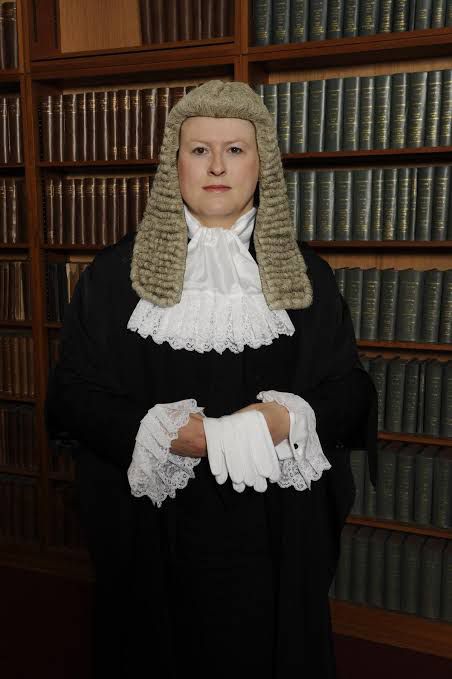Britain’s first transgender judge has begun the process of taking the government to the European Court of Human Rights over the Supreme Court’s ruling on biological sex.
The judgment from the Supreme Court, which ruled that trans women are not legally women under the Equalities Act, has led to warnings it would “exclude trans people wholesale from participating in UK society”. But gender critical campaigners have hailed the ruling as a victory for women.
Lawyers acting on behalf of Dr Victoria McCloud, 55, who stood down last year, filed an appeal in the ECHR arguing a breach of her rights under article six of the European Convention on Human Rights – the right to a fair and impartial hearing by an independent tribunal.

The judge claims the Supreme Court refused permission for her to intervene on how the issues would affect herself and other trans people.
Representing her is Oscar Davies, the UK’s first openly non-binary barrister and Olivia Campbell-Cavendish, the founder and executive director of the Trans Legal Clinic and the first black trans lawyer in the UK. This is the first case in history to be brought by a trans-led legal team.
“For the trans community, it embodies a simple truth: there must be no more conversations about us, without us”, a spokesperson for the Trans Legal Clinic said.
“At its heart lies the principle in Article 6 of the European Convention on Human Rights; the right to a fair and impartial hearing by an independent tribunal. This cornerstone of democratic societies exists to guarantee that those whose rights are affected can take part in proceedings that determine their future.”
“The Trans Legal Clinic has established a community crowdfunding campaign at www.translegalclinic.com/mccloud to help meet the costs of the case. The initiative is intended to enable members of the public to contribute directly to the proceedings, reflecting the collective interest and engagement in the issues at stake”, they added.
Dr McCloud came out as trans in her twenties and is one of about 8,000 people to have legally changed the sex on their birth certificate.
She sought to present evidence to the Supreme Court about how the outcome of the ruling would affect her and other trans people, and has since accused them of refusing to hear her evidence.
Speaking to The Independent in June, Dr McCloud said April’s bombshell ruling leaves Britain “not much better than countries that criminalise trans people”, arguing her rights have been violated under Article Six of the Universal Declaration of Human Rights.
“It literally changed my legal sex for discrimination purposes, overnight,” she said.
Noting that there were no trans voices heard in the Supreme Court’s case, even though she relinquished her role as a judge in order to apply last year to intervene, Dr McCloud added: “I think it becomes embarrassing to law, to have a situation where essentially the people who are the most affected in human rights terms don’t actually have any voice at any stage.”
The Supreme Court heard interventions from a number of gender-critical groups including Sex Matters, the LGB Alliance and The Lesbian Project.
Dr McCloud’s case comes as For Women Scotland takes action against the Scottish Government over policies it says are “inconsistent” with the ruling.
The group said that it now has “little choice” but to take further legal action as some policies regarding transgender pupils in schools and transgender people in custody remain in place – which the group said is “in clear breach of the law”.
For Women Scotland has now applied to the Court of Session seeking to quash the policies, saying they are in place at the “detriment of vulnerable women and girls, leaving us little choice but to initiate further legal action.”
European Court of Human Rights